Home Remedies for Jaundice By Dr. Siddharth Gupta
By Dr Siddharth Gupta +2 more

Get,

to manage your symptom
Get your,


4 Cr+ families
benefitted

OTP sent to 9988776655



You’ve successfully subscribed to receive
doctor-approved tips on
Whatsapp

Get ready to feel your best.

Hi There,
Download the PharmEasy App now!!


Register to Avail the Offer
Send OTPBy continuing, you agree with our Privacy Policy and Terms and Conditions

Hi There,
Sign up on PharmEasy now!!
Trusted by 4 crore+ families

OTP sent to 9988776655



You have unlocked 25% off on medicines




Code: NU25
By Dr Siddharth Gupta +2 more
Table of Contents
Do you know someone who started to appear yellow suddenly? It might be a possibility that they had pale/yellow eyes or nails. The most probable reason for this may be jaundice.
Jaundice is one of the most common liver disorders. It involves excess bilirubin circulating in the body. Bilirubin is a yellow-orange coloured bile pigment produced when the haemoglobin breaks down from the red blood cells. Jaundice is associated with yellow discolouration of the mucous membrane, skin, nail beds and the whites of the eyes1.

Jaundice is quite common in newborns since their liver is not completely developed to eliminate the accumulated bilirubin. It usually goes away with time2.
We will discuss more about the symptoms and causes of jaundice, and also share some preventive measures that may be helpful, but it is recommended to consult a doctor for proper diagnosis and treatment.
Jaundice can be caused at three stages.
They are: before, during and after the production of bilirubin. Problems associated with any of the three phases may cause jaundice.
The three stages where jaundice can occur along with their causes are:
Before the production of bilirubin (unconjugated jaundice):
During the production of bilirubin:
After production of bilirubin:
At times when jaundice is present, but without any visible symptoms, severity is predicted by finding the underlying cause of jaundice.
Various causes of jaundice may have a particular set of symptoms as given below:
Jaundice caused by infections may be accompanied by the following symptoms
If infections do not cause jaundice, you may have symptoms like:
Jaundice due to liver disease may be accompanied by the following symptoms:
Some of the natural remedies for jaundice are as follows:

Natural sunlight may be beneficial for neonatal jaundice. Sunlight includes a wide spectrum, which includes the bilirubin-absorbing range. Natural sunlight may be a replacement for phototherapy for neonatal jaundice3.
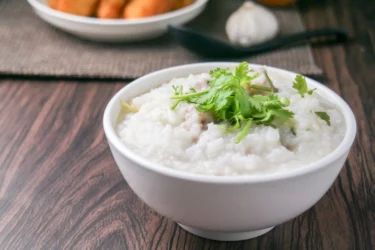
During the acute stages of jaundice, porridge without salt and tamarind or cooked rice is recommended. Oil, ghee and spices shall be avoided in jaundice. Non- vegetarian food should also be avoided. Meals may include vegetables without seasoning or tempering.
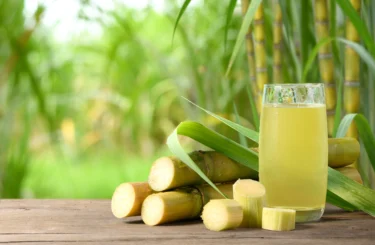
Sugarcane juice may keep bilirubin levels in control and may help in jaundice4. Sugarcane juice is good for liver diseases. For making sugarcane juice, the sugarcane is washed well, and the outer layer is removed. It is then cut into pieces, and the sugarcane extract and the juice are taken out. Squeeze the extract to remove any remaining juice.
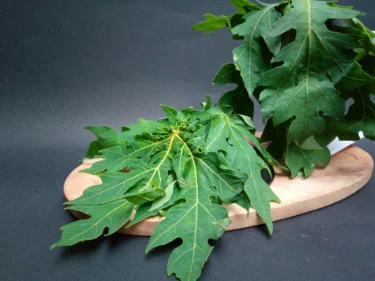
Enzymes like papain present in papaya leaves may help cure jaundice5. Grind chopped papaya leaves using a mortar and pestle to extract the paste from the leaves. You can add honey to it and consume it.
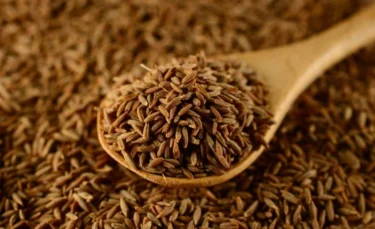
Black cumin is traditionally known as jeera. The phytoconstituents present in black cumin may help to treat jaundice6. Black cumin may be lightly toasted, then grounded and consumed.

Mint, commonly known as pudina, may be used for jaundice. According to folk medicine, mint tea may help cure jaundice7. The juice from the mint leaves is mixed with honey and then consumed to treat jaundice.
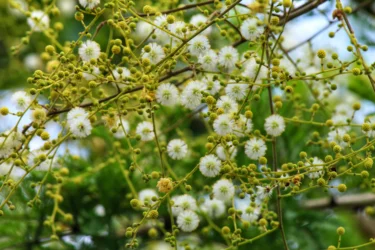
Babul may be used for jaundice due to phytoconstituents like flavonoids and alkaloids. The whole plant or the flower of babul may be useful in jaundice8. Babul powder is mixed in water and consumed.
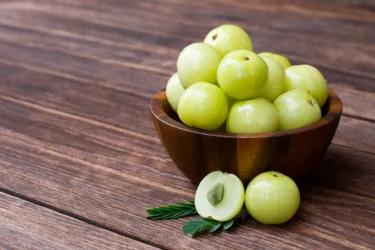
Amla is known as Indian gooseberry in English. The fruit, leaf and bark of the amla plant may be used to manage jaundice8. The bilirubin level may return to normal by consuming amla. The consumption of amla juice may cure jaundice. Dice three to four Indian gooseberries into small pieces. Add some water and black salt into a blender and blend till it is smooth. Strain the pulp obtained and extract the juice. Amla juice is ready to be consumed.
Though studies show the benefits of the given herb and home remedies for jaundice, these are insufficient. Therefore, there is a need for large-scale human studies to establish the true extent of the benefits of these home remedies on human health. Thus, these should only be taken cautiously and never as a substitute for medical treatment.
Also Read: Everything To Know About the Influenza Vaccine & Its Importance
It is recommended to consult a doctor immediately for proper treatment for jaundice.
You must not rely on home remedies alone to treat the condition. Instead, you should consult a qualified doctor if the symptoms do not improve.
Also Read: Best Home Remedies for Uric Acid By Dr. Siddharth Gupta
Jaundice is a liver disease with an increased bilirubin level in the bloodstream. The mouth, skin and sclera turn yellow. It is found to be common among infants. Breastfeeding may be an effective at-home treatment for jaundice in new-borns. A few common symptoms of jaundice may include yellow discolouration and flu-like symptoms.
Natural sunlight may help cure jaundice in adults and infants both. In addition, dietary modification, consuming sugarcane juice, papaya leaves’ paste, black cumin, amla, babul, and mint tea may be some natural remedies for jaundice.
Also Read: All You Need To Know About Typhoid!
Staying in natural sunlight for about 2 hours may help cure infant jaundice. Breastfeeding may also help treat jaundice.
Home remedies may help in the treatment of jaundice. Consuming a glass of sugarcane juice, having papaya leaves paste, black cumin, amla, babul, and mint tea are some home remedies that may help to cure jaundice.
Jaundice may be cured by consuming herbs like mint and black cumin.
Disclaimer: The information provided here is for educational/awareness purposes only and is not intended to be a substitute for medical treatment by a healthcare professional and should not be relied upon to diagnose or treat any medical condition. The reader should consult a registered medical practitioner to determine the appropriateness of the information and before consuming any medication. PharmEasy does not provide any guarantee or warranty (express or implied) regarding the accuracy, adequacy, completeness, legality, reliability or usefulness of the information; and disclaims any liability arising thereof
Comments

Leave your comment...
You may also like
Comments